Hyundai i30 (PD): Head restraint / Front seat head restraints

The driver’s and front passenger’s seats are equipped with adjustable head restraints for the passengers safety and comfort.
Adjusting the height up and down
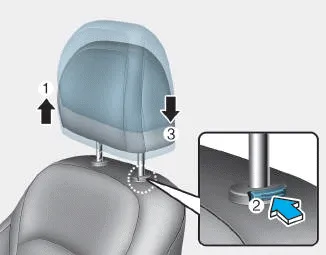
To raise the head restraint:
1. Pull it up to the desired position (1).
To lower the head restraint:
1. Push and hold the release button (2) on the head restraint support.
2. asLower the head restraint to the desired position (3).
Forward and rearward adjustment
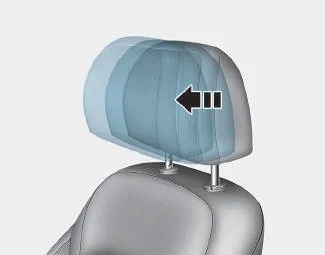
The head restraint may be adjusted forward to 3 different positions by pulling the head restraint forward to the desired detent. To adjust the head restraint to it’s furthest rearwards position, pull it fully forward to the farthest position and release it.
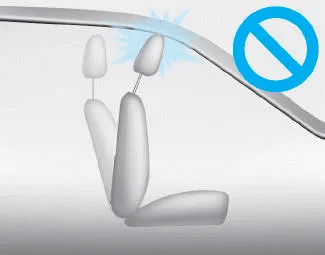
NOTICE
If you recline the seatback towards the front with the head restraint and seat cushion raised, the head restraint may come in contact with the sunvisor or other parts of the vehicle.
Removal/Reinstall
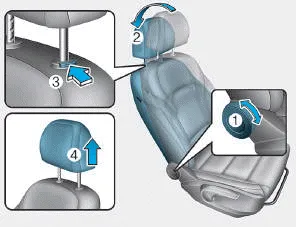
■ Type A

■ Type B
To remove the head restraint:
1. Recline the seatback (2) using the seatback angle knob or switch (1).
2. Raise the head restraint as far as it can go.
3. Press the head restraint release button (3) whilst pulling the head restraint up (4).
WARNING
NEVER allow anyone to travel in a seat with the head restraint removed.
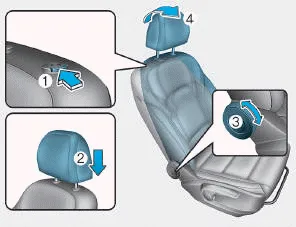
■ Type A
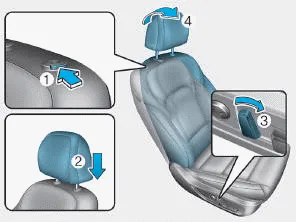
■ Type B
To reinstall the head restraint :
1. Recline the seatback.
2. Put the head restraint poles (2) into the holes whilst pressing the release button (1).
3. Adjust the head restraint to the appropriate height.
4. Recline the seatback (4) using the seatback angle knob or switch (3).
WARNING
Always make sure the head restraint locks into position after reinstalling and adjusting it properly.
The vehicle’s front and rear seats have adjustable head restraints. The head restraints provide comfort for passengers, but more importantly they are designed to help protect passengers from whiplash and other neck and spinal injuries during an accident, especially in a rear impact collision.
The rear seats are equipped with head restraints in all the seating positions for the passenger’s safety and comfort. Adjusting the height up and down To raise the head restraint: 1.
Other information:
Hyundai i30 (PD) 2018-2024 Owner's Manual: If the engine overheats
If your temperature gauge indicates overheating, you experience a loss of power, or hear loud pinging or knocking, the engine may be overheating. If this happens, you should: 1. Pull off the road and stop as soon as it is safe to do so. 2.
Hyundai i30 (PD) 2018-2024 Owner's Manual: Exterior care
Exterior general caution It is very important to follow the label directions when using any chemical cleaner or polish. Read all warning and caution statements that appear on the label. Finish maintenance Washing To help protect your vehicle’s finish from rust and deterioration, wash it thoroughly and frequently at least once a
Categories
- Manuals Home
- Hyundai i30 Owners Manual
- System maintenance
- Exterior overview
- Luggage net (holder)
- New on site
- Most important about car
